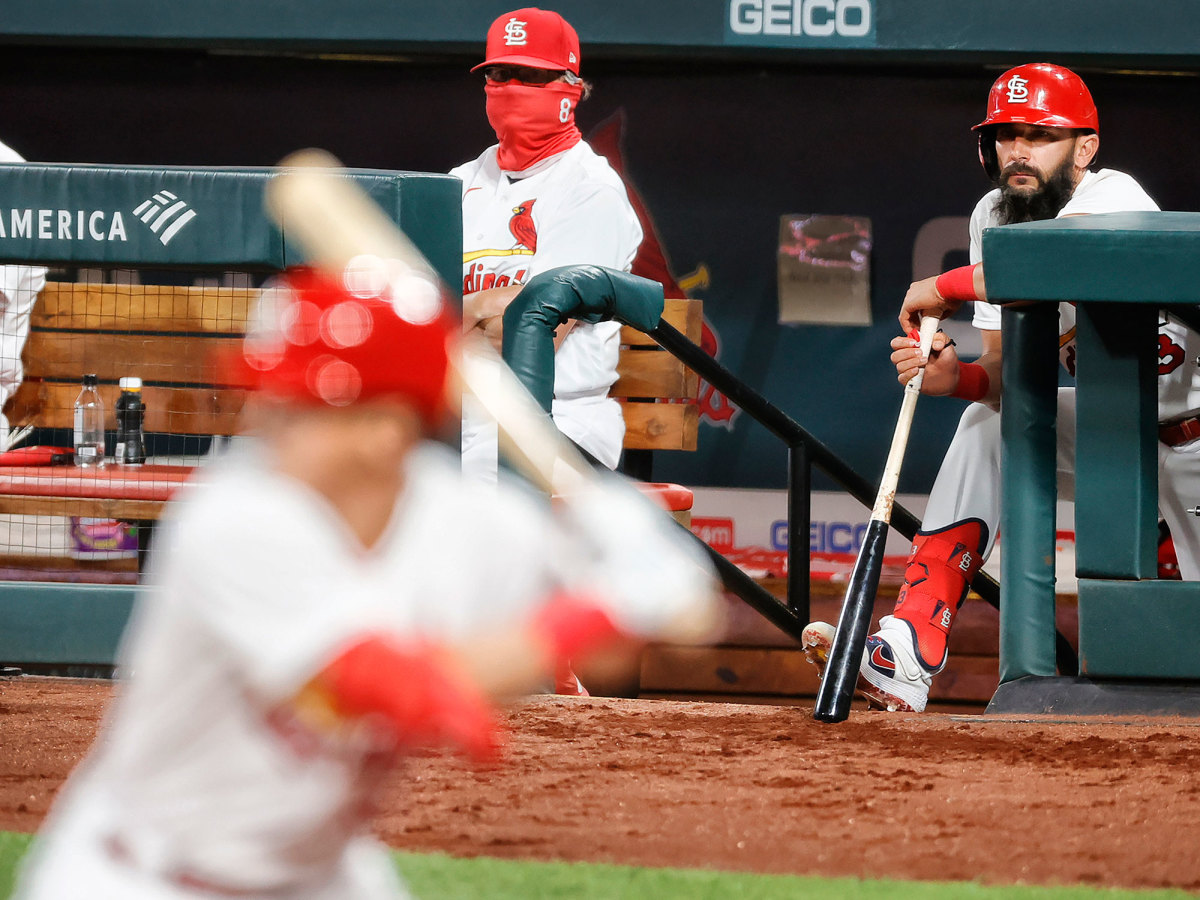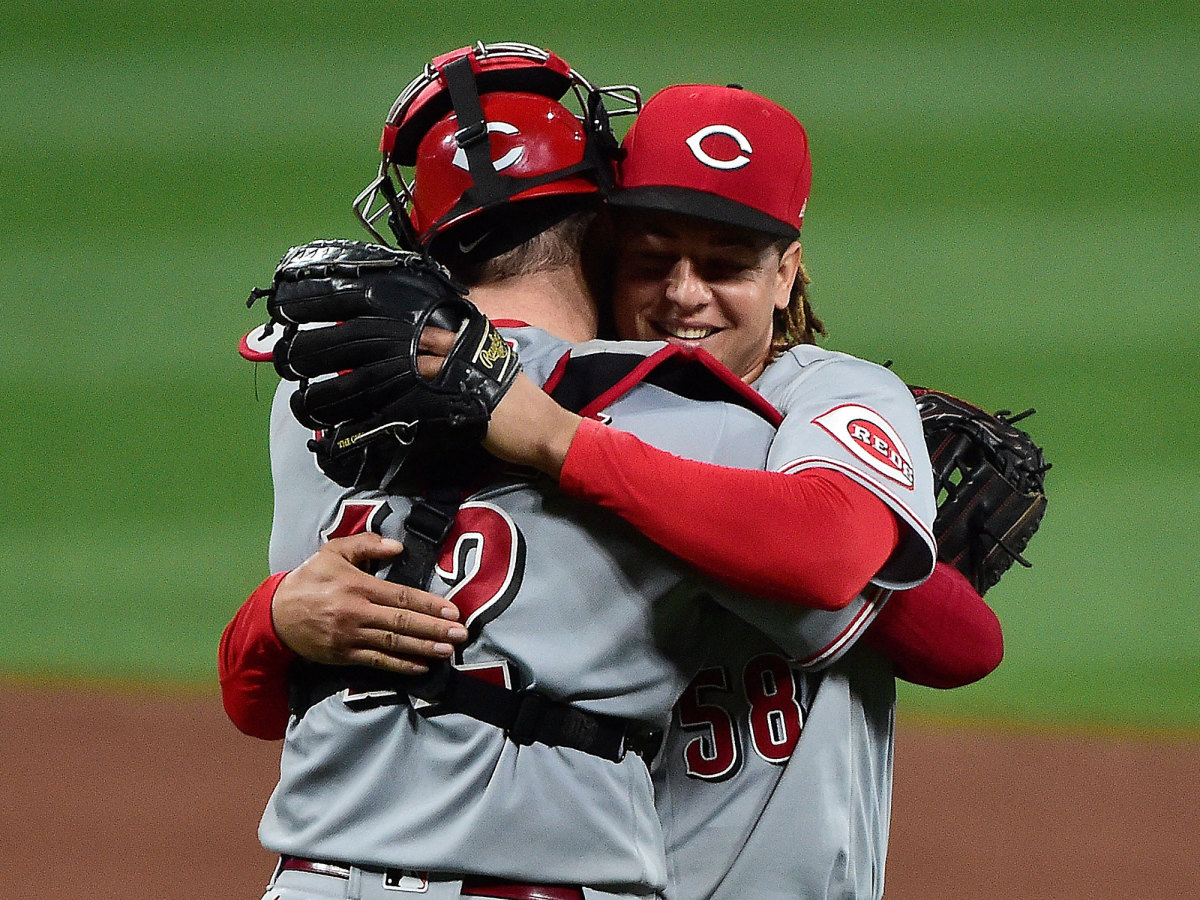Eight Teams, Four Spots: Breaking Down the NL's Chaotic Playoff Race
Even the math is exciting. Eight teams. Four playoff spots. One week.
Welcome to the playoffs before the playoffs. The race to fill the National League postseason bracket has the potential chaos to help turn the one-year trial of an expanded postseason into a permanent format.
Owners and players will have to negotiate whether the format will continue, including with some needed tweaks if it does. For instance, this year the best-in-class Dodgers will earn virtually no greater advantage than will the second-place Padres. That should not happen over a 162-game schedule.
The best parts of an expanded postseason are being seen in practice: More players experience postseason baseball; more teams stay in the race rather than punting the last third of a season, if not the entire one (the Marlins obtained the best position player traded at the deadline, Starling Marte); and more games in September that mean something. There are 49 games this week involving the eight NL teams on the postseason bubble–32 of those games are playoff contender vs. playoff contender.
The Dodgers and Padres are in. The Braves and Cubs should be able to hold their first-place leads. The last four NL spots will go to second-place finishers in the NL East (Marlins, Phillies or Mets) and Central (Cardinals, Reds or Brewers) and the next two best overall records (Giants and Rockies are in it with the aforementioned six). There are no tiebreaker games. Intradivision record is the first tiebreaker. Still, the season may be extended past Sunday. St. Louis has a pending doubleheader Monday in Detroit. One or both games would be played as needed.
It is possible a .500 record could be enough to grab a playoff spot. Let’s assume that 31 wins is the magic number to get in. Here are the eight NL postseason teams on the bubble ranked according to the best chances to get to 31 wins.

1. St. Louis Cardinals (26–24)
Schedule: 3 at Royals, 5 vs. Brewers, 2 at Tigers (if needed)
Need to go: 5–5
Skinny: The Cardinals don’t hit home runs (29th in the majors), and their grueling COVID-19-adjusted schedule finishes with 10 games in eight days–assuming they need to play a makeup doubleheader in Detroit on Monday, their 12th doubleheader of the year. They are 11–6 in seven-inning games, 15–18 in regulation or extras. Their pitching and defense are so good it’s hard to see the Cardinals collapsing. Their last five saves have been secured by five pitchers. Opponents are hitting .213 against St. Louis pitching. Only four teams ever have been tougher to hit: the 2016 Cubs (.212), 1968 Orioles (.212), 1906 Cubs (.209) and 1968 Indians (.206).
2. Miami Marlins (28–25)
Schedule: 4 at Braves, 3 at Yankees
Need to go: 3–4
Skinny: The Marlins are the biggest surprise in baseball, given their 105 losses last year, an early-season COVID-19 outbreak, and their lack of experience. All but one game for the Marlins this year has been started by a pitcher no older than 28. Eighteen games have been started by five pitchers who made their major league debut this year–among the 18 different Marlins to debut. They are no lock. The schedule is difficult, and the bullpen (5.27, 26th in the majors) will be tested against the No. 1 and 4 scoring teams in baseball.
3. Philadelphia Phillies (27–26)
Schedule: 4 at Nationals, 3 at Rays
Need to go: 4–3
Skinny: Zack Wheeler and Aaron Nola are lined up to start four of the team’s final seven games. (The Phillies are 11-8 when those two pitchers start.) The Phillies will miss Max Scherzer, Blake Snell and Tyler Glasnow. That’s the good news. The bullpen (MLB-worst 7.15 ERA) and injury concerns (J.T. Realmuto, Rhys Hoskins, Bryce Harper and Jake Arrieta) create so much volatility that this team could go in either direction.
4. Milwaukee Brewers (26–26)
Schedule: 3 at Reds; 5 at Cardinals
Need to go: 5–3
Skinny: They’re doing it again under manager Craig Counsell. Over the previous three years, Milwaukee was the best team in baseball at outperforming its expected record (+14 wins), the best team in one-run games (85–59) and the best team in the NL in September (56–26)–all while playing just one meaningless game. (Milwaukee was eliminated in Game 161 in 2017, clinched the NL Central title in Game 163 the next year, and sealed the wild card in Game 162 last year.) The Brewers live on the razor’s edge, and this year is no different. They are 6–2 since getting no-hit, 10–8 in September and 10–5 in one-run games. They don’t need help from other teams to get into the postseason. The Brewers’ hitters do strike out often, but that means little in today’s game. Four of the six teams with the most strikeouts are going to the postseason. Milwaukee could make it five of six.

5. Cincinnati Reds (27–27)
Schedule: 3 vs. Brewers, 3 at Twins
Need to go: 4–2
Skinny: The majors’ top strikeout staff will throw Luis Castillo, Sonny Gray and Trevor Bauer against the Brewers. The offense lives on walks and home runs, not by stringing hits together. Based on batting average, Cincinnati (.212) could displace the 1906 Cubs as the worst-hitting team to ever make the playoffs–but so could the Cubs (.225), A’s (.226), Indians (.227) and Brewers (.228) in a game that is more and more about selling out for home runs. It may be a static style, but the Reds know what wins in a three-true-outcome game. The top six home-run-hitting teams are all going to the playoffs. Cincinnati could make it seven.
6. San Francisco Giants (26–26)
Schedule: 4 vs. Rockies; 4 vs. Padres
Need to go: 5–3
Skinny: San Francisco has hung in there by leveraging an easy schedule. It is 6–18 against winning teams and have not won any series this year against them. Beware that last series, which opens with a Friday doubleheader. The Giants are 1–5 vs. San Diego while getting outscored 38–19.
7. New York Mets (24–29)
Schedule: 3 at Rays; 4 at Nationals
Need to go: 7–0
Skinny: Starting Tuesday, the Mets face Blake Snell, Tyler Glasnow, Patrick Corbin and Max Scherzer. And Jacob deGrom can’t start every game for them. Even with him, Mets starters are 11–18 with a 5.41 ERA–replacing the ’62 Mets rotation (5.18) as the worst rotation in franchise history.
8. Colorado Rockies (23–29)
Schedule: 4 at Giants; 4 at D-Backs.
Need to go: 8–0
Skinny: The Rockies have been a decent road club (11-11), but a 5-14 record against the Dodgers and Padres doomed them.
